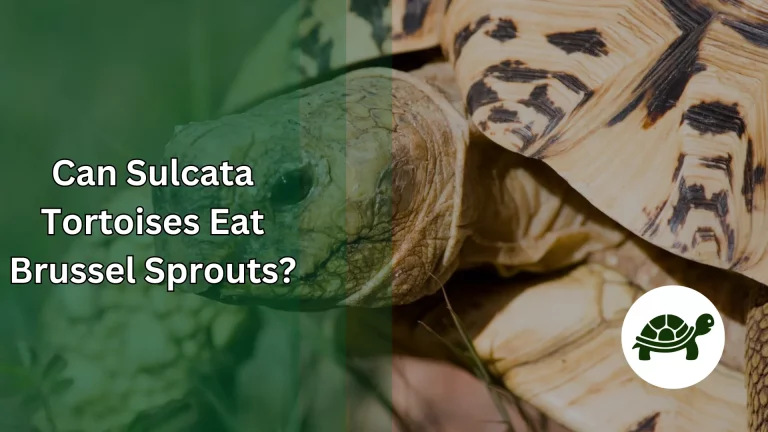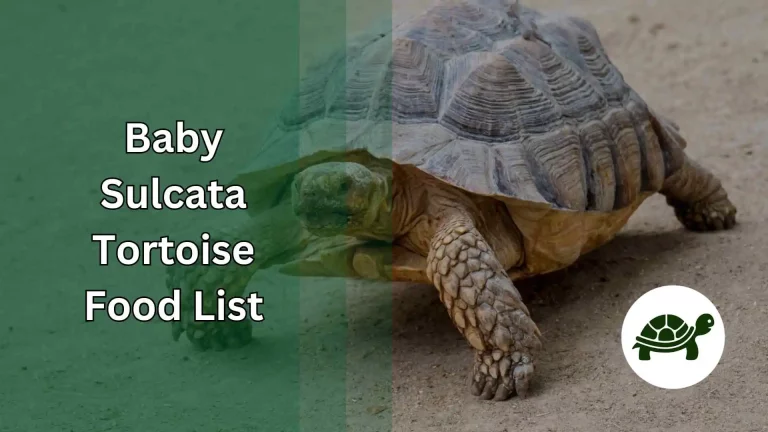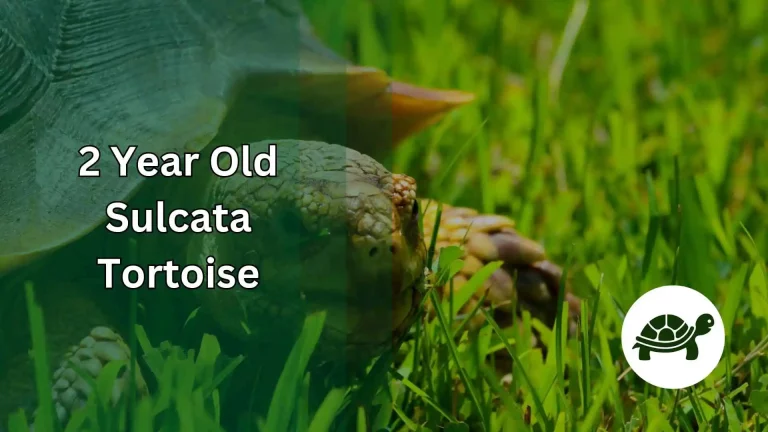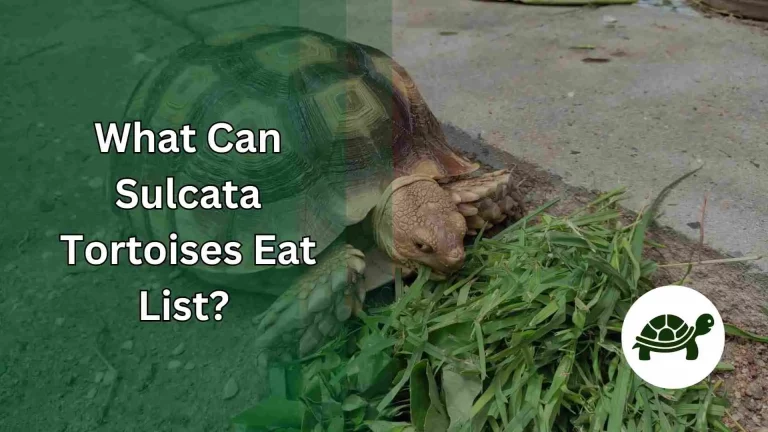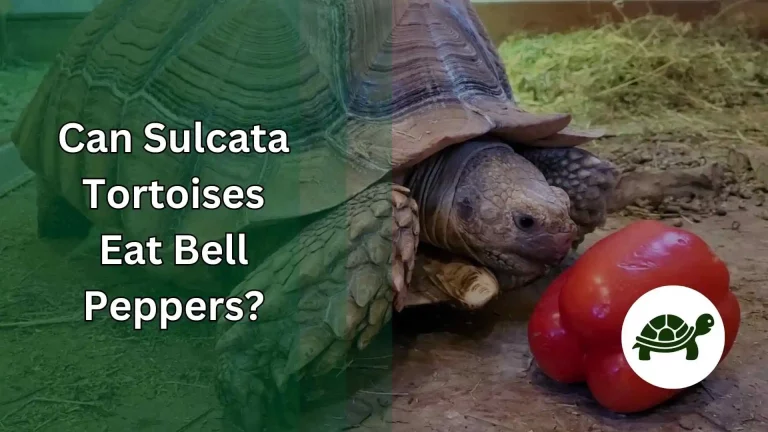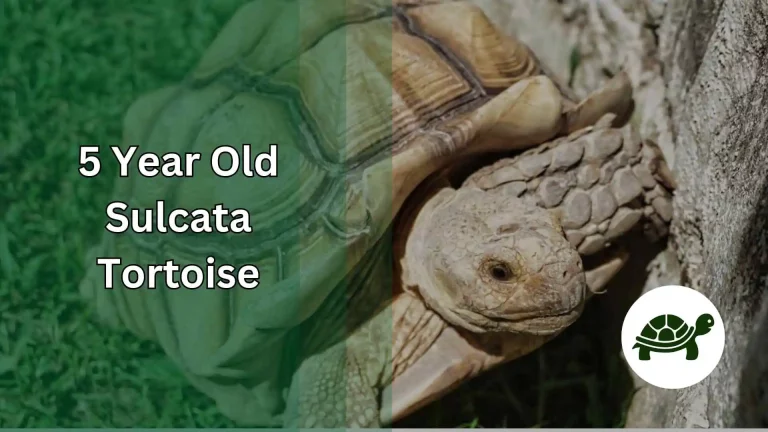Can Sulcata Tortoises Eat Watermelon? – All You Need To Know
Welcome to the wonderful world of sulcata tortoises! These magnificent creatures, known for their distinct size and charismatic nature, are a popular choice among pet enthusiasts. Originating from the arid regions of Africa, sulcata tortoises, also affectionately known as African spurred tortoises, hold a special place in the hearts of those who care for them. In this post, we’ll dive into an intriguing aspect of their care – their diet – and address a common question among tortoise owners: “Can sulcata tortoises eat watermelon?”
Understanding the dietary needs of sulcata tortoises is crucial for their health and longevity. Unlike other pets, the diet of these herbivorous giants is quite specific, often leaving owners pondering about the safety and health implications of various fruits and vegetables. Watermelon, with its juicy sweetness, seems like a tempting treat to offer, but is it suitable for your shelled companion?
In our exploration, we aim to not only answer whether sulcata tortoises can munch on this refreshing fruit but also to provide insights into how it fits into their overall nutritional requirements. So, whether you’re a long-time tortoise owner or new to the world of sulcatas, stay tuned as we delve into understanding the role of watermelon in a sulcata tortoise’s diet, ensuring you’re equipped with the best knowledge for taking care of your scaly friend.
Understanding Sulcata Tortoises

Sulcata tortoises are fascinating creatures. Known as the third-largest species of tortoise in the world, they can live for 70 years or more! Their natural habitat is the southern edge of the Sahara desert. This environment shapes much of their behavior and diet.
In the wild, sulcatas roam vast, arid areas. They’re herbivores, primarily feeding on grasses and plants native to their habitat. This simple, fiber-rich diet is key to their health. As pet owners, it’s our job to mimic this diet as closely as possible.
What does this mean for their meals at home? Diversity is less important than the right kind of food. High-fiber, low-sugar, and low-protein foods are the way to go. This diet keeps their digestive system running smoothly and prevents health issues.
Nutritional Content of Watermelon

Watermelon isn’t just a summer snack for us; it’s also packed with nutrients. Mostly water – about 92% – it’s a hydrating fruit. It’s low in calories and fats, making it a light treat. But what about its vitamin and mineral content?
This juicy fruit is rich in vitamins A and C, both great for health. Vitamin A is vital for vision and immune function, while Vitamin C helps with skin and overall health. Watermelons also contain antioxidants like lycopene, which fights free radicals in the body.
However, watermelon has a high sugar content. While it’s natural sugar, the amount matters, especially in a tortoise’s diet. This brings us to an important question – how does this sugary, nutrient-rich fruit fit into the diet of a sulcata tortoise? Understanding this will help us ensure our shelled friends enjoy not just tasty but also healthy treats.
Can Sulcata Tortoises Eat Watermelon?
So, can sulcata tortoises enjoy watermelon? The short answer is yes, but with caution. Though watermelon is non-toxic to these tortoises, it’s not a typical part of their natural diet.
Watermelon’s high water content is good for hydration. However, its sugar level is a concern. Sulcatas are not used to sugary foods. In the wild, their diet mainly consists of fibrous plants and grasses. Too much sugar can lead to health problems in tortoises, like digestive issues and shell abnormalities.
The trick is balance and moderation. Feeding watermelon as a small, occasional treat is fine. It shouldn’t replace their regular diet of grasses and leafy greens. Think of watermelon as a rare delicacy rather than a daily snack for your sulcata tortoise.
Feeding Watermelon to Your Sulcata Tortoise
If you’ve decided to treat your sulcata tortoise to some watermelon, here’s how to do it safely. First, remember it’s a treat, not a meal. Offer small chunks or slices. This makes it easy for your tortoise to eat.
Always choose ripe, fresh watermelon. Organic is best, to avoid pesticides. Remove the seeds and rind. Though these parts aren’t toxic, they’re tough to digest and not very nutritious for your tortoise.
How often should you feed them watermelon? Not very. Once or twice a month is enough. This frequency keeps their sugar intake low but still lets them enjoy the juicy fruit. And always watch for any changes in their behavior or health after they eat new foods.
Alternative Foods for Sulcata Tortoises
Besides the occasional watermelon treat, what else can you feed your sulcata tortoise? It’s crucial to stick to a diet that mimics their natural food sources. Luckily, there are plenty of safe and nutritious options.
Focus on leafy greens. Foods like kale, dandelion greens, and mustard greens are great. They provide the fiber and nutrients a sulcata needs. Avoid iceberg lettuce though, as it’s low in nutrients. Also, mix in some grasses and hay for variety. To know more about food preferences of Sulcata Tortoise visit What to Feed Sulcata Tortoise?
Vegetables can be a part of their diet too. Think about adding butternut squash, carrots, and pumpkin, especially in moderation. These veggies are packed with vitamins and add a nice change to their routine. Steer clear of foods high in oxalates like spinach, which can hinder calcium absorption.
Frequently Asked Questions (FAQs)
1. How much food should I feed my sulcata tortoise each day?
The amount of food your sulcata tortoise needs can vary based on its size, age, and activity level. As a general rule, a daily serving of fresh greens and grasses that roughly equals the size of their shell is a good guideline. It’s essential to monitor their weight and health and adjust portions as needed. Overfeeding can lead to obesity and health issues, so it’s crucial to find the right balance.
2: Are there any fruits that sulcata tortoises can safely eat besides watermelon?
Yes, sulcata tortoises can enjoy a variety of fruits in moderation. Some safe options include apples (without seeds), pears, and melons (like cantaloupe and honeydew). These should be given sparingly due to their sugar content, making up no more than about 10% of their diet. Always remove any seeds and hard pits, and cut them into manageable pieces.
3. Can sulcata tortoises eat meat or dairy products?
Sulcata tortoises should not eat meat or dairy products. Their digestive system is not designed to process animal proteins and can cause severe health problems. Sulcatas are herbivores, so their diet should primarily consist of grasses, leafy greens, and a small portion of vegetables and fruits. Feeding them animal protein can lead to shell deformities, liver and kidney problems, and other serious health issues.
4. How important is water for my sulcata tortoise, and how should I provide it?
Water is crucial for sulcata tortoises, even though they originate from arid environments. They should always have access to fresh, clean water. A shallow water dish that they can easily enter and exit is ideal, ensuring they can drink whenever they need to. It’s also beneficial for them to soak in water, which helps with hydration and shell health. Regular soaking, about once a week, is recommended, especially for younger tortoises.
5. What is the best type of habitat for a sulcata tortoise?
A sulcata tortoise thrives in a spacious, secure outdoor enclosure with access to plenty of natural sunlight, which is vital for their shell and bone health. The enclosure should have a dry, warm environment with a sheltered area to protect them from extreme temperatures and weather. If outdoor housing isn’t possible, especially in colder climates, a large indoor enclosure with a UVB light source is necessary. Remember, sulcatas are quite large and active, so space is a key consideration in their overall wellbeing.
Conclusion
In conclusion, while sulcata tortoises can enjoy a slice of watermelon now and then, their diet should mainly consist of grasses and leafy greens. Remember, the key to a healthy tortoise lies in mimicking their natural habitat’s diet as closely as possible. Occasional treats like watermelon are fine but should be given in moderation to avoid health issues. Keeping informed about their dietary needs and potential hazards ensures your sulcata tortoise remains healthy and happy for years to come.
Caring for a sulcata tortoise can be a rewarding experience, filled with learning and enjoyment. By understanding their dietary needs, habitat requirements, and general care, you’re well on your way to being an excellent pet owner. Always keep exploring and asking questions about your sulcata’s care – after all, each tortoise is unique, and their requirements can vary. Your interest and dedication to their wellbeing make all the difference in their quality of life.


